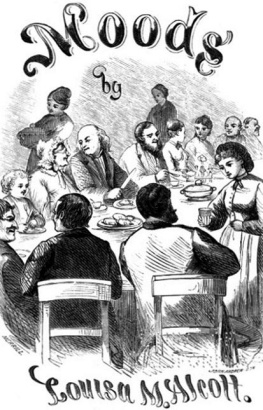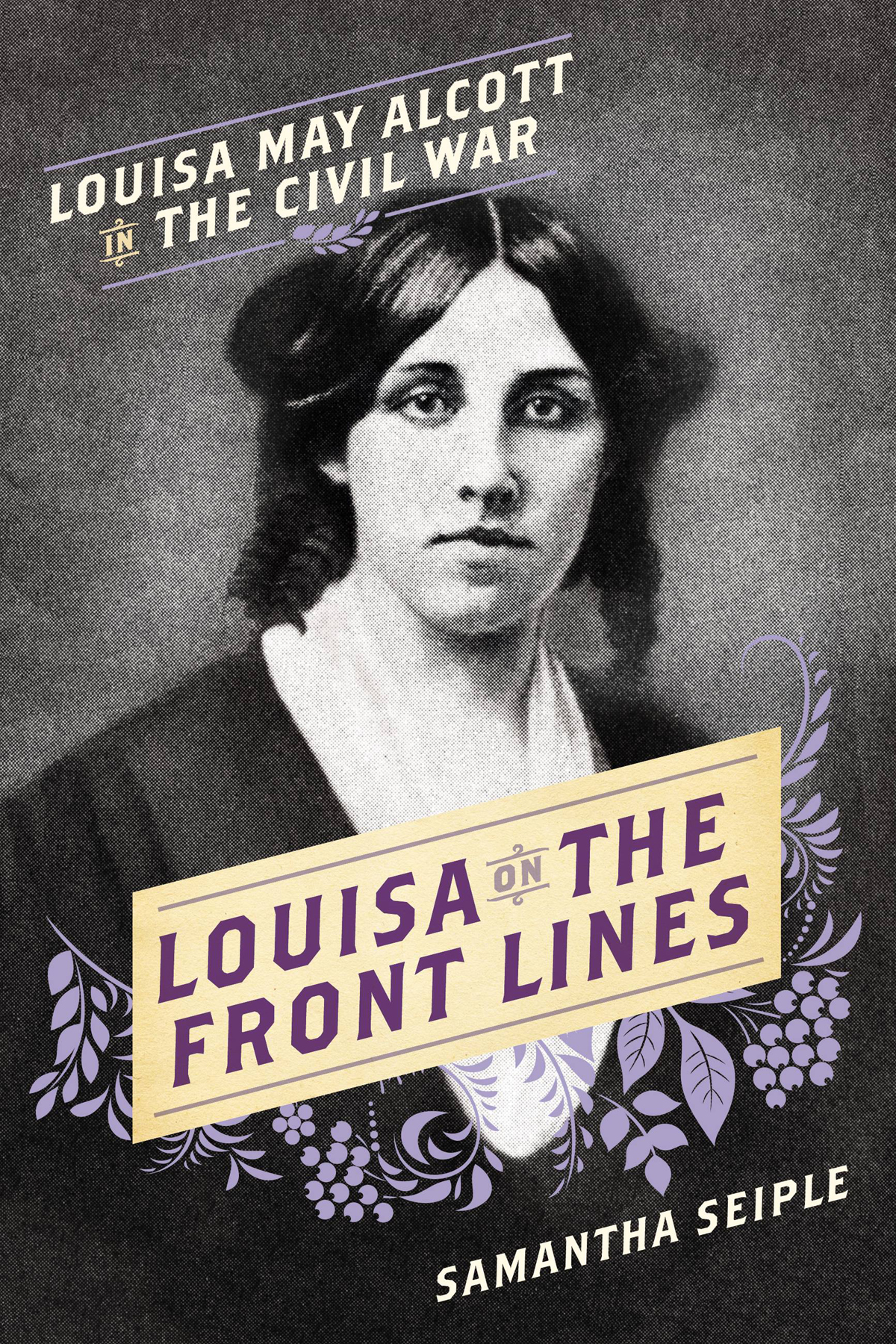Copyright 2019 by Samantha Seiple
Cover design by Kerry Rubenstein
Cover image Bettmann Archive
Cover copyright 2019 Hachette Book Group, Inc.
Hachette Book Group supports the right to free expression and the value of copyright. The purpose of copyright is to encourage writers and artists to produce the creative works that enrich our culture.
The scanning, uploading, and distribution of this book without permission is a theft of the authors intellectual property. If you would like permission to use material from the book (other than for review purposes), please contact permissions@hbgusa.com. Thank you for your support of the authors rights.
Seal Press
Hachette Book Group
1290 Avenue of the Americas, New York, NY 10104
www.sealpress.com
@sealpress
First Edition: February 2019
Published by Seal Press, an imprint of Perseus Books, LLC, a subsidiary of Hachette Book Group, Inc. The Seal Press name and logo is a trademark of the Hachette Book Group.
The publisher is not responsible for websites (or their content) that are not owned by the publisher.
Library of Congress Cataloging-in-Publication Data
Names: Seiple, Samantha, author.
Title: Louisa on the front lines: Louisa May Alcott in the Civil War / Samantha Seiple.
Description: First edition. | New York, NY: Seal Press, 2019. | Includes bibliographical references and index.
Identifiers: LCCN 2018032967| ISBN 9781580058049 (hardcover) | ISBN 9781580058032 (ebook)
Subjects: LCSH: Alcott, Louisa May, 1832-1888. | Alcott, Louisa May, 1832-1888Career in nursing. | Women authors, American19th centuryBiography. | United StatesHistoryCivil War, 1861-1865Hospitals. | United StatesHistoryCivil War, 1861-1865Women. | Military nursingUnited StatesHistory19th century. Classification: LCC PS1018 .S45 2019 | DDC 813/.4 [B]dc23
LC record available at https://lccn.loc.gov/2018032967
ISBNs: 978-1-58005-804-9 (hardcover), 978-1-58005-803-2 (ebook)
E3-20181229-JV-NF-ORI
PRAISE FOR
LOUISA ON THE FRONT LINES
Louisa on the Front Lines is a lively account of a critical moment in Alcotts life, her time working as a nurse in the Civil Wara moment that reverberates, sometimes in surprising ways, in her most beloved work.
Louisa Thomas, Author of Louisa: The Extraordinary Life of Mrs. Adams
Louisa on the Front Lines tells the story of a powerful period in Louisa May Alcotts lifeher brief occupation as a Civil War nurse. Samantha Seiple, with her lively, well-researched narrative, captures Alcott at a pivotal time in the history of our country and in her own career as a young writer. Readers will discover the story both engaging and informative. Alcott herself would have marveled at how Seiples biographical and historical account reads like a novel!
Daniel Shealy, UNC Professor of English and Editor of the Journals of Louisa May Alcott
Louisa on the Front Lines illuminates the working life of a wartime nursethe stench, the rot, the supply shortages, the lack of respect shown nurses by male bureaucrats and doctors, the sheer horror of trying to care for young men whose bodies were mangled beyond repair. Strong and determined, Louisa May Alcott was tireless and loving as she tried to heal her patients or to be at their sides with comfort when they died. Not coincidentally, her experiences helped propel her to financial success as one of Americas first professional women writers. Bravo to Samantha Seiple for her sensitive portrayal of the difficulties and the successes of Civil War nurses, as seen through the clear eyes of Louisa May Alcott.
Dr. Patricia Brady, Historian and Biographer
For Todd with love
Mr. March did not go to the war, but Jo did.
Louisa May Alcott [Jo March], responding to fans wanting to know what is true in her beloved semiautobiographical book, Little Women
D URING THE HEIGHT OF THE HOLIDAY SEASON, IN December 1860, Louisa May Alcott and her neighbors in the tranquil town of Concord, Massachusetts, were buzzing with worry over the bitter divide of the United States. In November, Abraham Lincoln had won a contentious presidential election and had plans to prevent slavery in the westward-expanding nation. Shortly after he was elected, South Carolina was the first slave state to rebel and secede from the Union, and more Southern states were threatening to follow.
The Alcott family supported Lincoln, and if women had been allowed to vote, Louisa would have joined her father, Bronson, at the Concord Town Hall to cast her ballot. It was no secret that the Alcotts were red-hot abolitionists as well as feminists. They were outspoken and unwavering in their belief that men and women, regardless of race, deserved equal rights and opportunities.
Louisa was so passionate in her belief that when the Civil War broke out in April 1861, she wanted to be a soldier in the Union army. Since women werent allowed to join the military, Louisa resigned herself to any opportunity to help abolish slavery and focused on more ladylike, acceptable pursuits, such as sewing uniforms for soldiers.
But then the door of opportunity opened just a crack, and Louisa was eager to push her way through. The Union army announced it was allowing women to be paid nurses, an unheard-of development at a time when it was not considered respectable work for a woman. Even so, practicality and the needs of wartime won out in this particular gender fight. The fierce and bloody battles of the war had resulted in an overwhelming number of casualties. There were too many sick and wounded and not enough male nurses to help, convincing the military to relent. Despite this new opportunity, there wasnt a mad rush of women signing up. Louisa, however, made the exceptional decision to enlist right away.
But Louisa wasnt from a typical family, and she wasnt a conventional woman. An avid runneralso unheard of for women at the timeand single still at age twenty-eight, her belief system had been shaped intellectually and emotionally by the environment she grew up in, and it was one of exceptional educational riches and desperate poverty. Her parents, who were friends with some of the greatest philosophers and reformers of the time, including Ralph Waldo Emerson, embraced ideals and beliefs that remain progressive by todays standards. Louisa had a front row seat watching her father and mother risk their livelihood, freedom, and lives hiding, teaching, and even living among freed and fugitive slaves.
against the oppression and abuses of society.
While her mother fought for the familys survival, Louisa was writing her observations, thoughts, and feelings in her journals and letters. She was working on her plan to not only rescue her family from poverty but also to help drive change in the fight for human rights. Like her parents showed her, Louisa was going to lead by example.
The Civil War offered Louisa the opportunity to go to the front lines, where she would push the boundaries for women and test her beliefs, while gaining life experiences that would translate into an influential and lasting literary contributionLittle Women.
. Louisa expertly wove her progressive beliefs and empathetic insights into her novel, creating original and unforgettable characters. Little Women was an instant best seller and has never been out of print. Millions of copies later (and counting), the trials and tribulations of the March sisters are still relatable, speaking universally to the hearts and minds of readers worldwide. Reading Louisa May Alcotts classic coming-of-age story is a rite of passage for most young girls, many of whom find themselves reading it again and again throughout their lifetime and passionately recommending it to the next generation of little women.


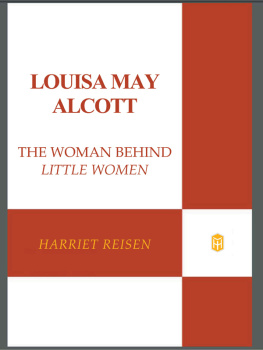
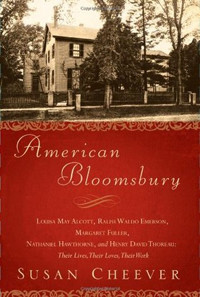

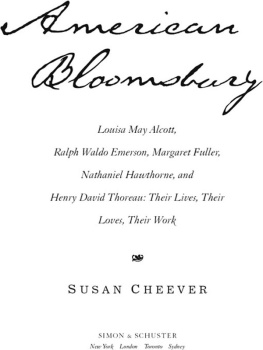
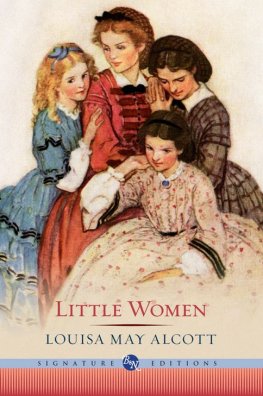

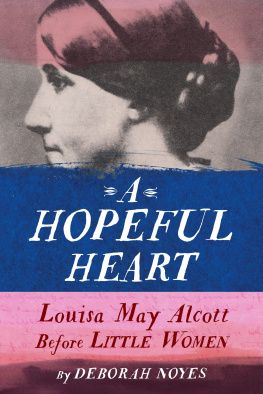

![Alcott - Louisa May Alcott: [a personal biography]](/uploads/posts/book/163779/thumbs/alcott-louisa-may-alcott-a-personal-biography.jpg)

